***Express interest in hosting a Fulbright Scholar-in-Residence in 2027-2028 by completing this survey!***
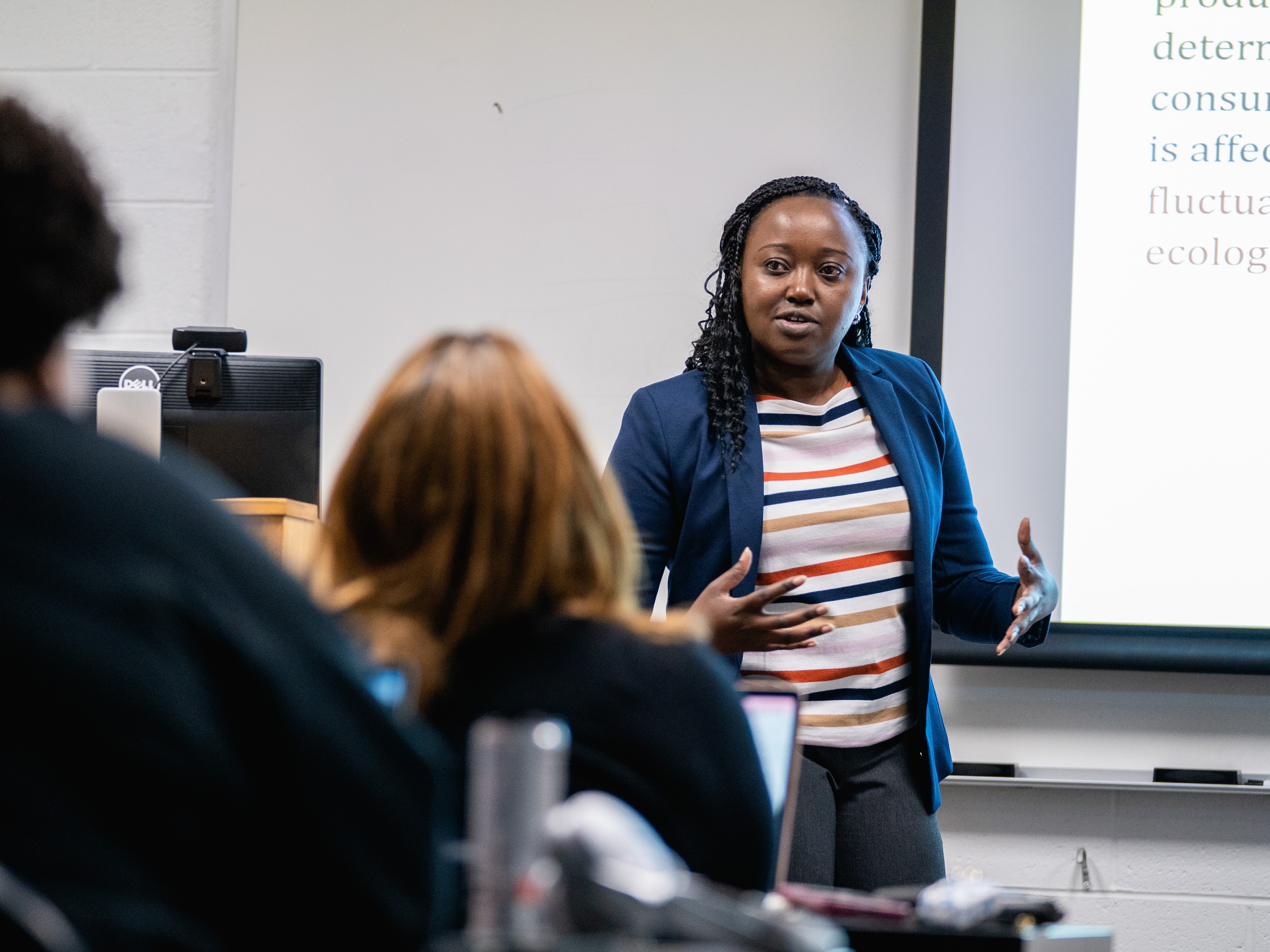
The Fulbright Scholar-in-Residence (S-I-R) Program is a unique Fulbright Scholar Program initiative that is driven by U.S. institutions of higher education curriculum and teaching needs. Through the S-I-R Program, institutions host a scholar from outside of the United States for a semester or full academic year to teach courses, assist in curriculum development, guest lecture, develop study abroad/exchange partnerships and engage with the campus and the local community. S-I-Rs work across departments and curricula in a variety of ways to widely enhance or expand an existing international program, develop new world area studies programs, add an international dimension to existing coursework or provide an opportunity for American students to learn about a particular world region or country.
The institution benefits from the expertise provided, and the Scholar attains experience in the U.S. higher education arena. Host institutions will mobilize community partners to provide the visiting scholar with opportunities to learn about American culture, participate in speaking engagements, and contribute to community activities. Through these activities the institution can bolster its ability to teach courses in critical disciplines.
S-I-R applicant institutions are encouraged to propose topics in critical disciplines that suit their institution’s needs.
Webinars and Resources
Upcoming Webinars
- Friday, March 13 at 1PM-2PM EST: Introduction to the Fulbright Scholar-in-Residence (S-I-R) Program: Application Overview
- Friday, April 24 at 1PM-2PM EST: U.S. Colleges and Universities Reflect: Fulbright S-I-R Impacts on Campus and in the Local Community
- Friday, May 8 at 1PM-2PM EST: Last Call: Fulbright S-I-R Competition FAQs and Support
Contact the S-I-R Team:
A semester to full academic year.
The application to host a Fulbright Scholar-in-Residence in 2027-2028 will open in early March 2026 with a submission deadline of June 1, 2026 at 5:00PM EST.
In advance of the application launch, we invite interested institutions to express their interest in the program and sign up for an individual advising session via this survey.
Eligibility
- Applications are open to all accredited U.S. institutions of higher education. Non-U.S. institutions are ineligible. The institution must be in compliance with all applicable regulations for federally assisted programs.
- Foreign scholars are eligible to serve as Scholars-in-Residence. U.S. citizens and permanent residents are ineligible. However, applications directly from foreign scholars will not be accepted. An application must be submitted by an authorized U.S. institution of higher education employee.
- Scholar teaching responsibilities are limited to a maximum of two courses per semester.
- Proposal activities must be in keeping with the policies established by the Foreign Fulbright Scholarship Board.
- Preference will be given to institutions that have not recently hosted a Fulbright Scholar-in-Residence (within the previous two years).
- Proposals will be accepted from single institutions as well as jointly from two institutions
Eligible Topics/Fields
Applicants may propose projects in any discipline; the program especially encourages institutions to propose activities that support the following themes:
- Artificial Intelligence and Emerging Technology
- STEM Leadership and Innovation
- International Business and Economics
- Freedom of Speech and Open Dialogue
- Education and National Security
- Energy Security, Maritime, and Critical Minerals
- Cultural Heritage and Preservation
- Sports Diplomacy, Leadership and International Engagement
- Workforce Skills and Career Readiness
Application Resources
The application to host a Fulbright Scholar-in-Residence in 2027-2028 will open in early March 2026 with a submission deadline of June 1, 2026 at 5pm EST.
In advance of the application launch, we invite interested institutions to express their interest in the program and sign up for an individual advising session via this survey.
Detailed instructions for the S-I-R host application can be found here: 2026-2027 Application Guidelines.
Countries participating in the 2026-2027 Fulbright Scholar-In-Residence Program by geographical world region
Note: Geographical listings are a matter of administrative convenience and are not intended to imply a United States government position on the legal status of the areas listed.
- Africa, Sub-Saharan
Botswana Ethiopia Mozambique Cabo Verde Ghana Namibia Cameroon Guinea Rwanda Cote d’Ivoire Kenya South Africa Democratic Republic
of CongoMadagascar Uganda Eswatini Mauritius - East Asia and the Pacific
Australia Mongolia Taiwan Brunei New Zealand Thailand Cambodia Philippines Timor-Leste Indonesia Singapore Vietnam Japan South Korea Malaysia South Pacific (Fiji, Kiribati, Micronesia, Nauru, Tonga, Tuvalu, Papua New Guinea, Solomon Islands, Vanuatu, Samoa, Marshall Islands) - Europe and Eurasia
Albania France Netherlands Andorra Georgia North Macedonia Armenia Germany Norway Austria Greece Poland Azerbaijan Hungary Portugal Belarus Iceland Romania Belgium Ireland Serbia Bosnia-Herzegovina Italy Slovak Republic Bulgaria Kosovo Slovenia Croatia Latvia Spain Cyprus Lithuania Sweden Czech Republic Luxembourg Switzerland Denmark Malta Turkey Estonia Moldova Ukraine Finland Montenegro United Kingdom - Middle East and North Africa
Algeria Jordan Qatar Bahrain Kuwait Saudi Arabia Egypt Lebanon Tunisia Iraq Morocco United Arab Emirates Israel Oman - South and Central Asia
Bangladesh Nepal Turkmenistan India Pakistan Uzbekistan Kazakhstan Sri Lanka Kyrgyz Republic Tajikistan - Western Hemisphere
Argentina Costa Rica Nicaragua Bahamas Dominican Republic Panama Barbados and the Eastern Caribbean Ecuador Paraguay Belize El Salvador Peru Bolivia Guatemala Suriname Brazil Guyana Trinidad/Tobago Canada Honduras Uruguay Chile Jamaica Colombia Mexico
For details on scholar benefits, please view our Information for Named or Recruited S-I-R Candidates.
Tips for Crafting a Competitive Application
The Fulbright Program is committed to partnering with U.S. institutions of higher education to bolster their teaching efforts. Fulbright's Scholar-in-Residence Program connects a wide range of U.S. institutions with scholars from other countries for an exchange experience that benefits the host and scholar alike. Institutions interested in applying to host a foreign scholar through the Fulbright Scholar-in-Residence Program are encouraged to follow these tips to ensure a strong proposal.
- IMPACT: The S-I-R Program is driven by your institution's needs and interests. Demonstrate how your S-I-R Program will contribute to key goals at your institution and why Fulbright is the right partner to support your goals. Teaching is central to the S-I-R Program. Link your scholar's activities and expertise to your proposed teaching program and its impact on student learning as well as any relevant measures related to curriculum development, broad cross-campus engagement, community outreach/engagement, establishing an exchange partnership, or other indicators. Envision the impact you aspire to reach by hosting a scholar. Enlist the support of your institution's leadership to show commitment to your proposal beyond the hosting department and to raise the profile and impact of the S-I-R at your institution. Address in your proposal what types of future communication and follow-on projects you would like to ensure are in place after the scholar returns to their home country.
- SCHOLAR: If you are naming a specific scholar, be sure to explain why you have selected this individual and in what capacity you know this individual. If you are requesting assistance with recruitment, select up to two countries within one world region and include a clear rationale for selecting these countries. Tie the specialization of your chosen or desired scholar to the activities you detail in your proposal.
- SUPPORT: Detail your plan for curriculum, registration, workspace, and classroom requirements, ensuring your plan adheres to the recommended teaching load of one to two courses per semester. Share your plan to involve and support your scholar in your campus community, including assigning both a faculty and staff point person to address concerns throughout the S-I-R's program. Think creatively about the support that your institution might be able to give in-kind in terms of airport transit and local transportation, housing, and/or meal plans.
- COMMUNITY: Detail campus or community resources the scholar would benefit from or contribute to, whether personally or professionally (campus libraries/archives, labs, training opportunities, working groups, local conferences, etc.). Reach out to a variety of local organizations (e.g. local libraries, cultural centers, local media, or schools/school districts) that could work with you and make preliminary plans to also engage with the scholar during their exchange. Share your strategy for getting the word out about your S-I-R's visit to your campus and local community, whether through events, press releases, social media, or other means.
FAQs | Fulbright Scholar-in-Residence Program
- Our institution is planning to name a specific scholar - are there specific requirements?
- Can we apply without naming a specific scholar?
- Our institution is interested in hosting a professional from another country, is this appropriate?
- I am a non-U.S. citizen interested in participating as a scholar. How can I apply for the Scholar-in-Residence Program?
- Our institution would like to apply for an S-I-R award and name someone who was recently in the United States on a Fulbright Scholar or other award. Is this acceptable?
- What are some examples of community engagement?
- What are the criteria for selecting institutions for the S-I-R award?
- Can an institution submit more than one application within the same cycle?
- Which is the most important goal of the program: to serve the institution or to serve the scholar?
- If our proposal is selected for an Award, is the funding provided to our institution or to the Scholar?
- My institution has limited resources. Is cost-sharing required? What can we offer in the way in-kind support in lieu of direct financial support?
- What do the Accident and Sickness Health Benefits for the Scholar cover?
- Is the Scholar-in-Residence Award for teaching only?
- Our institution seeks to bring a scholar to teach foreign language. Is it appropriate for us to apply for an S-I-R award?
- Can our institution apply to host an S-I-R to teach English as a second language or foreign language (ESL/EFL)?
- Our institution is planning to name a specific scholar - are there specific requirements?
If you request a scholar by name, be specific about the reasons for selecting that particular individual. Relate the scholar's qualifications to the proposed activities, including how the proposed scholar's academic credentials, standing, and English language skills are appropriate for the proposed activities, their teaching/lecturing experience, and in what ways has your institution been engaged with this scholar previously. Within the application, provide the Scholar's biographical information, copy of their CV, and two letters of recommendation, including one from the Scholar’s direct supervisor at their home institution. If selected, the individual scholar will connect with the home country Fulbright office to submit additional required material. A separate application from the individual scholar is not submitted at this time. - Can we apply without naming a specific scholar?
Yes, you will submit the application with a request to recruit a scholar. If your application is selected for an award, IIE will coordinate with U.S. embassies and Fulbright commissions abroad to recruit for your institution. Within the application, you will mark “no” to “Are you requesting a specific scholar?”. You will be required to select two countries from within one specific geographic world region from which you would like the scholar to originate; the discipline or field of expertise, theoretical orientation (if applicable), and subjects/issues about which you wish the scholar to be particularly knowledgeable; and the scholar’s preferred qualifications including academic degree level and years of teaching experience. If your application is selected, U.S. embassies and/or Fulbright commissions in the relevant countries will conduct recruitment efforts to identify a suitable scholar(s) who fits the desired criteria. When recruitment is concluded, each country nominates 1-2 scholars for review. Once approved by the U.S. Department of State’s Bureau of Educational and Cultural Affairs, materials from potential scholars will be forwarded to your institution for final selection. - Our institution is interested in hosting a professional from another country, is this appropriate?
Yes, institutions are encouraged to consider not only academics but professionals in the media, government, the arts, and from other fields who have skills to offer through teaching at a U.S. college or university. Professionals have successfully participated in the S-I-R Program. S-I-Rs can teach courses; assist in curriculum development; guest lecture; develop study abroad/exchange partnerships; and engage with the campus and the local community. They should have had some previous teaching experience and must have the requisite English teaching skills. - I am a non-U.S. citizen interested in participating as a scholar. How can I apply for the Scholar-in-Residence Program?
The Scholar-in-Residence Program allows for U.S. institutions to apply to host a potential visiting scholar. Individual scholars may not apply directly. If you are in contact with a U.S. institution that has expressed interest in hosting a Scholar-in-Residence, encourage them to connect with us at sir@iie.org and connect with your home country’s Fulbright office. In addition, please be encouraged to explore opportunities within the Fulbright Visiting Scholar Program. - Our institution would like to apply for an S-I-R award and name someone who was recently in the United States on a Fulbright Scholar or other award. Is this acceptable?
Foreign Scholars must have a gap of at least two years between Fulbright Scholar awards. Additionally, preference is given to scholars who have not previously served as a Fulbright Scholar and have not had opportunities to teach, study or conduct research in the United States for an extended period within the past five years. Substantial recent experience is defined by a period aggregating more than an academic year (nine months) during the past five years. If you request a scholar with such recent experience in the United States, the proposal must give special justification. Additionally, any named scholar should be mindful of any restrictions that may be tied to their prior U.S. visa (i.e., for J1, the 24-month bar). Reach out to IIE at sir@iie.org if you have questions about a proposed scholar’s eligibility. - What are some examples of cross-campus and community engagement?
The individual scholar is expected to connect with the broader campus and with the surrounding community, not just the hosting department or academic center. The campus and community engagement piece should indicate: a) in what ways the scholar will engage with students, faculty, and staff across campus such as guest lecturing, student and faculty advising, interacting with clubs and organizations, committee service, campus events, etc., and b), what educational, social, cultural and business/professional organizations, activities and events in the community might be attractive to a Scholar-in-Residence and to which they can contribute. Some examples have included guest lecture series; film series from their home country; visits to local secondary schools; interaction with local media; etc. These should be resources/events where the scholar can learn from the community and where the community can learn from the scholar, on and off campus. See the Highlights section for examples of prior successful programmatic activities. - What are the criteria for selecting institutions for the S-I-R award?
The primary factors reviewers consider are the potential impact and benefits of the proposed teaching and programmatic activities to the institution’s goals as evidenced by the academic activities, other campus activities, community outreach activities, professional enrichment opportunities for the scholar and the sustainable impact of the S-I-R’s presence and why Fulbright is the right partner to assist your institution in achieving those goals. - Can an institution submit more than one application within the same cycle?
While an institution may submit more than one application from different departments, only one proposal from the institution will be funded. We recommend applicants speak with their institutional leadership and/or campus Fulbright representative (Fulbright Program Advisor/Fulbright Scholar Liaison) to coordinate cross-departmental needs and efforts to submit a single application. An application from an institution proposing to host a scholar in two different departments simultaneously or for a semester each will be considered, provided that the scholar has the requisite experience and expertise.
- Which is the most important goal of the program: to serve the institution or to serve the scholar?
Service to the institution is the most important goal. Other Fulbright Programs support individual scholars who are selected to pursue their own research and lecturing interests. The S-I-R Program is a unique Fulbright Scholar Program initiative that is specifically driven by the needs of U.S. institutions of higher education to bolster their teaching efforts in critical disciplines on their campuses. At the same time, S-I-R participants should learn and benefit from their time living and working in the United States. Prospective hosts are encouraged to think about ways to support their scholar’s intellectual and professional development while also involving them in enriching American cultural activities. - If our proposal is selected for an Award, is the funding provided to our institution or to the Scholar?
Fulbright grant benefits are provided directly to the individual Scholar, disbursed by IIE and include: round-trip international air travel, a monthly stipend, a monthly allowance for up to two dependents, and initial settling-in and professional allowances. IIE will issue the DS-2019 form in support of J-visa sponsorship. For a complete list of grant benefits, please review the “Information for named or recruited S-I-R candidates” resource on the Application Steps tab. - My institution has limited resources. Is cost-sharing required? What can we offer in the way of in-kind support in lieu of direct financial support?
Some higher education institutions are able to provide direct financial support and in-kind support. Others may not be able to do so. Direct financial support from institutions is not required for the S-I-R Program (See above for the benefits scholars receive from Fulbright). Host institutions are encouraged to think creatively about ways they can provide in-kind support to ensure a successful experience for the scholar. Some examples of in-kind support include providing housing, access to transportation, airport pick-up/drop-off, on-campus meal tickets, campus office space, apartment furnishing, professional allowances for scholars to attend conferences, etc. - What do the Accident and Sickness Health Benefits for the Scholar cover?
The U.S. Department of State provides essential accident and sickness coverage for Fulbright Scholars under a self-funded group policy called the Accident and Sickness Program for Exchanges (ASPE). This policy is not intended to cover preventative care such as annual examinations or check-ups. The Accident and Sickness Program for Exchanges Booklet is available at Seven Corners. - Is the Scholar-in-Residence Award for teaching only?
Teaching is central to the S-I-R’s responsibilities, within and across departments and curricula in a variety of ways to enhance or expand existing international programming, develop new world area studies programs, add an international dimension to existing coursework or provide an opportunity for students to learn about a particular world region or country. Beyond that, S-I-Rs are expected to engage with students, scholars, and staff across campus in a variety of ways and to interact with the surrounding community. Scholar teaching responsibilities are limited to a maximum of two courses per semester. - Our institution seeks to bring a scholar to teach a foreign language. Is it appropriate for us to apply for an S-I-R award?
Proposals that include foreign language teaching must also clearly include teaching on other subjects. (If you are seeking a scholar to only teach a foreign language, consider applying to host a Fulbright Foreign Language Teaching Assistant rather than the Fulbright Scholar-in-Residence Program.)
- Can our institution apply to host an S-I-R to teach English as a second language or foreign language (ESL/EFL)?
Proposals requesting a scholar to teach English as a second language or foreign language are not eligible.
2024-2026 Fulbright S-I-R Alumni Host Mentors
The Alumni Host Mentors in the 2024-2026 cohort come from U.S. institutions of higher education in Alabama, Minnesota, Missouri, and Pennsylvania. Alumni Host Mentors are former Fulbright Scholar-in-Residence (S-I-R) program hosts who have been appointed to serve as mentors to newly selected institutional hosts by providing coaching and guidance. Learn more about our Alumni Host Mentors below.
Ana Lopez-Aguilera — Bemidji State University (Bemidji, MN)
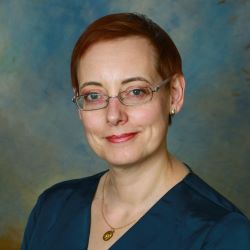
Ana M. Lopez-Aguilera (Ph.D. Univ. Nebraska-Lincoln) studied Translation, Interpreting and Pedagogy in Málaga (Spain) and she obtained her Ph.D. in Spanish at the University of Nebraska-Lincoln with a dissertation on Spanish novelist Belén Gopegui. As Assistant Professor of Spanish at Utah Valley University (Orem, UT), she taught courses in Translation, Interpreting, Spanish for Healthcare, as well as courses in Spanish language and Hispanic Cinema. In 2019, Dr. Lopez-Aguilera joined Bemidji State University (MN) to teach classes on Spanish language and Hispanic Cultural Studies. Since May 2024 she has been Interim Director of the Office of Teacher Education at BSU.
At Bemidji State University, Dr. Lopez-Aguilera served as a Fulbright Scholar-in-Residence host to a scholar from Peru during the 2023-2024 academic year.
Eric Sullivan — Metropolitan Community College, Longview Campus (Lee’s Summit, MO)

Eric Sullivan is an English Department Faculty and the Humanities, Education, and Exploratory Division Chair at the Metropolitan Community College-Longview in Lee’s Summit, Missouri. He earned his Bachelor of Arts in Education from the University of Michigan and a Master of Arts in Composition from the California State University at San Bernardino. He is a Higher Learning Commission Reviewer, the author of Uncovering Argument, and a veteran of the United States Navy, where he served in the Persian Gulf and visited a number of ports in Sri Lanka, Thailand, Dubai, and Kuwait.
In his spare time, Mr. Sullivan serves in the Veterans of Foreign Wars in various leadership roles on the Post, Department, and National levels. He currently serves as the Department of Missouri’s representative on the National Council of Administration. Mr. Sullivan lives in Lee’s Summit, Missouri with his wife Tracy and two daughters, Eleanor and Aurelia.
At MCC-Longview, a community college, Mr. Sullivan served as a Fulbright Scholar-in-Residence host to a scholar from Colombia in Fall 2023.
Matthew Kaufhold — Drexel University (Philadelphia, PA)
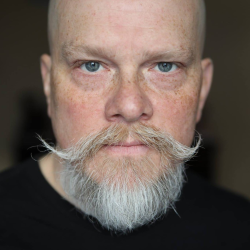
Matt Kaufhold is a Teaching Professor in Drexel University’s Cinema & Television Department, where he serves as Program Director for the Screenwriting & Playwriting Program. Matt holds a Bachelor of Arts Degree in English and American Literature and Languages from Harvard College and a Master’s Degree in Radio, Television, and Motion Pictures from the University of North Carolina, Chapel Hill. He has over 20 years of experience in the entertainment industry working as a director, producer, screenwriter, script consultant, and director of photography. His most recent work was featured in The Articulate Hour, a documentary series appearing on PBS. His films have appeared in film festivals worldwide.
Professor Kaufhold served as a Fulbright Scholar-in-Residence host for a filmmaker from India, during the 2023-2024 academic year, the first S-I-R for Drexel University.
Zachary Senwo — Alabama A&M University (Huntsville, AL)
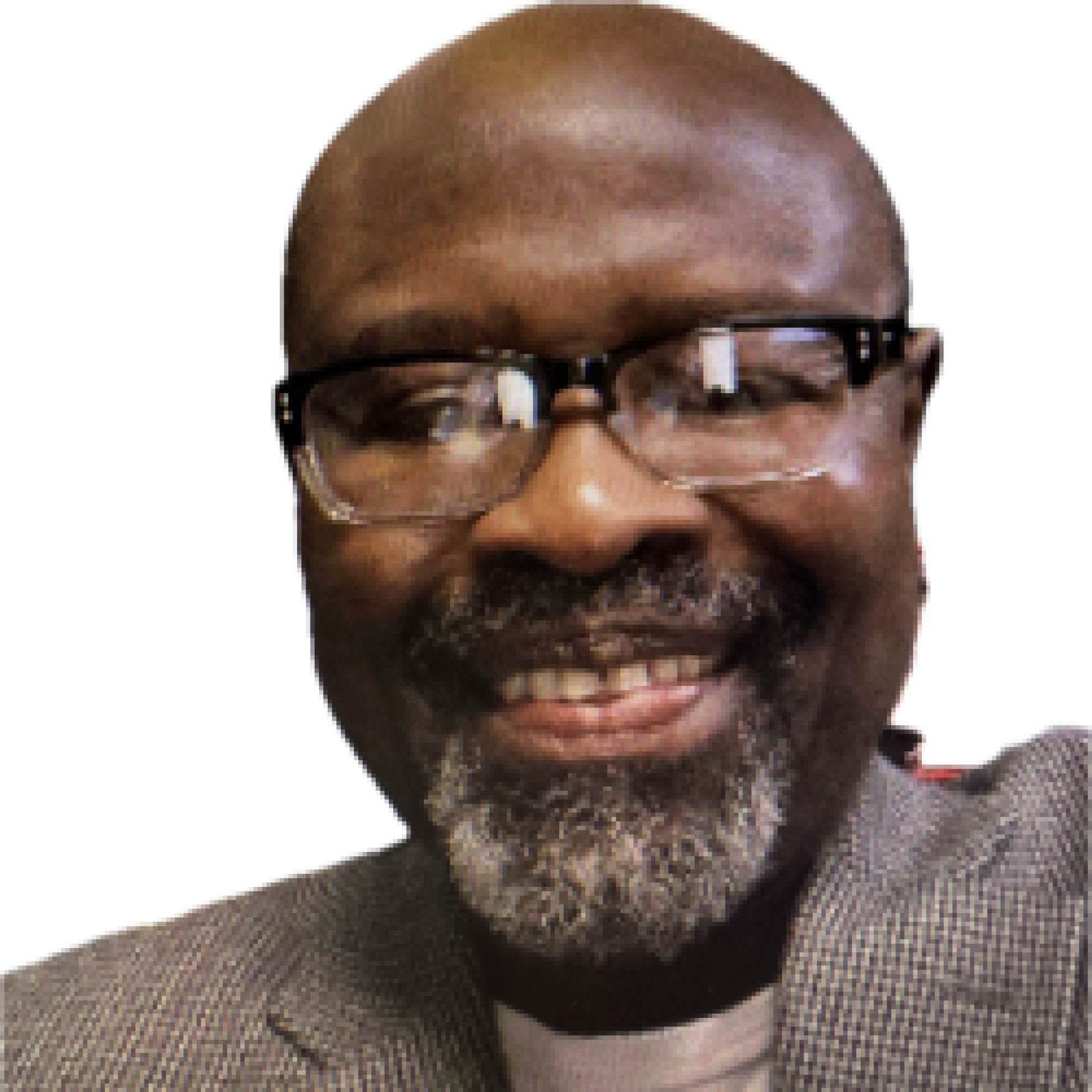
Zachary Senwo, Ph.D., is Professor of Soil/Environmental Microbial Biochemistry, Environmental Science & Toxicology at Alabama A&M University. He earned his Ph.D. in Soil Science at Iowa State University in 1995. He has successfully developed and launched study abroad agriculture research and academic programs with institutions in Brazil; Costa Rica; China; Honduras; Kenya; Rwanda; Caribbean; South Africa; Senegal; and the Democratic Republic of Congo. He is a 2011 US Food System Leadership Institute Fellow, a 2019, Fulbright Fellow to Kenya, and a 2023 Carnegie African Diaspora Fellow to Rwanda. He is an accomplished researcher and consultant in the field of agricultural science and international development spanning over 30 years.
At Alabama A&M University, an HBCU, Dr. Senwo served as a Fulbright Scholar-in-Residence host to a scholar from Rwanda during the 2023-2024 academic year.
- 2022-2024 Fulbright SIR Alumni Host Mentors
2022-2024 Fulbright SIR Alumni Host Mentors
Andrew Hill – St. Philip’s College (San Antonio, TX)
Image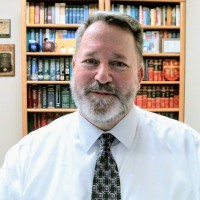
Andrew Hill, J.D. is an Associate Professor of Philosophy in the Social and Behavioral Sciences Department. He received his Doctor of Jurisprudence degree from Loyola University of New Orleans in 1998. He earned a Bachelor of Arts degree in Philosophy and English St. Mary’s University, and his Master of Arts degree in Philosophy from the University of St. Thomas in Houston. He is an advisor for the Philosophy Club and the Ethics Bowl Team, which competes in the competitions sponsored by the Association for Practical and Professional Ethics. In 2017, as part of his work for the Red Cross, he attended the 12th Advanced Seminar in International Humanitarian Law for University Lecturers and Researchers, in Geneva, Switzerland.
At St. Philip’s College, an HBCU and community college, Dr. Hill has hosted two Fulbright Scholars-in-Residence from the United Kingdom (2019-2020 and 2015-2016) and is currently hosting a S-I-R from Georgia (2023-2024).
Kate Edney – Regis College (Weston, MA)
Image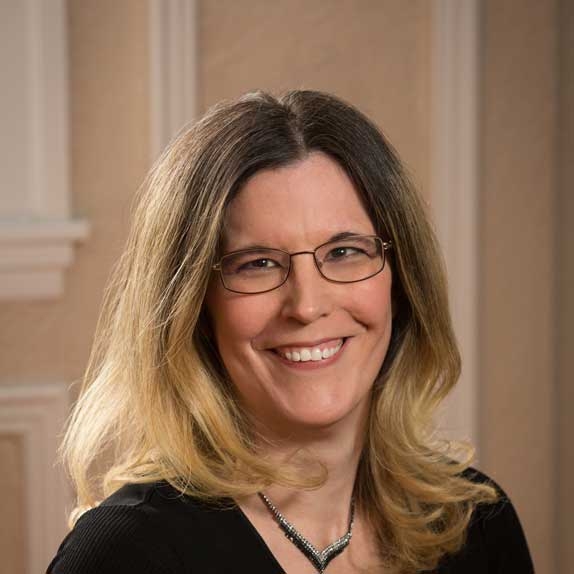
Kate Edney began her career at Regis as an adjunct faculty member in 2010, and has since served in many roles, including Dean of the School of Arts and Sciences for five years. Beginning in October, 2021 she was appointed to the role of Associate Provost of Institutional Accreditation, Assessment, and Research. Edney has written numerous publications, including her book Teaching History with Musicals (2017), and has presented nationwide at theatre, cultural studies, and museum studies conferences. Prior to Regis, Edney was associate registrar at Bowdoin College in Brunswick, ME. She has held numerous teaching roles at Plymouth State University and University of New England. She earned her Bachelor of Arts degree in cultural anthropology at Hampshire College, her Master of Arts at University of Southern Maine-Portland, and Doctor of Philosophy at Michigan State University.
Dr. Edney hosted her first Fulbright Scholars-in-Residence (from Bangladesh) during the 2018-2019 academic year at Regis College, a small Catholic liberal arts college.
Lauren Bell – Randolph Macon College (Ashland, VA)
Image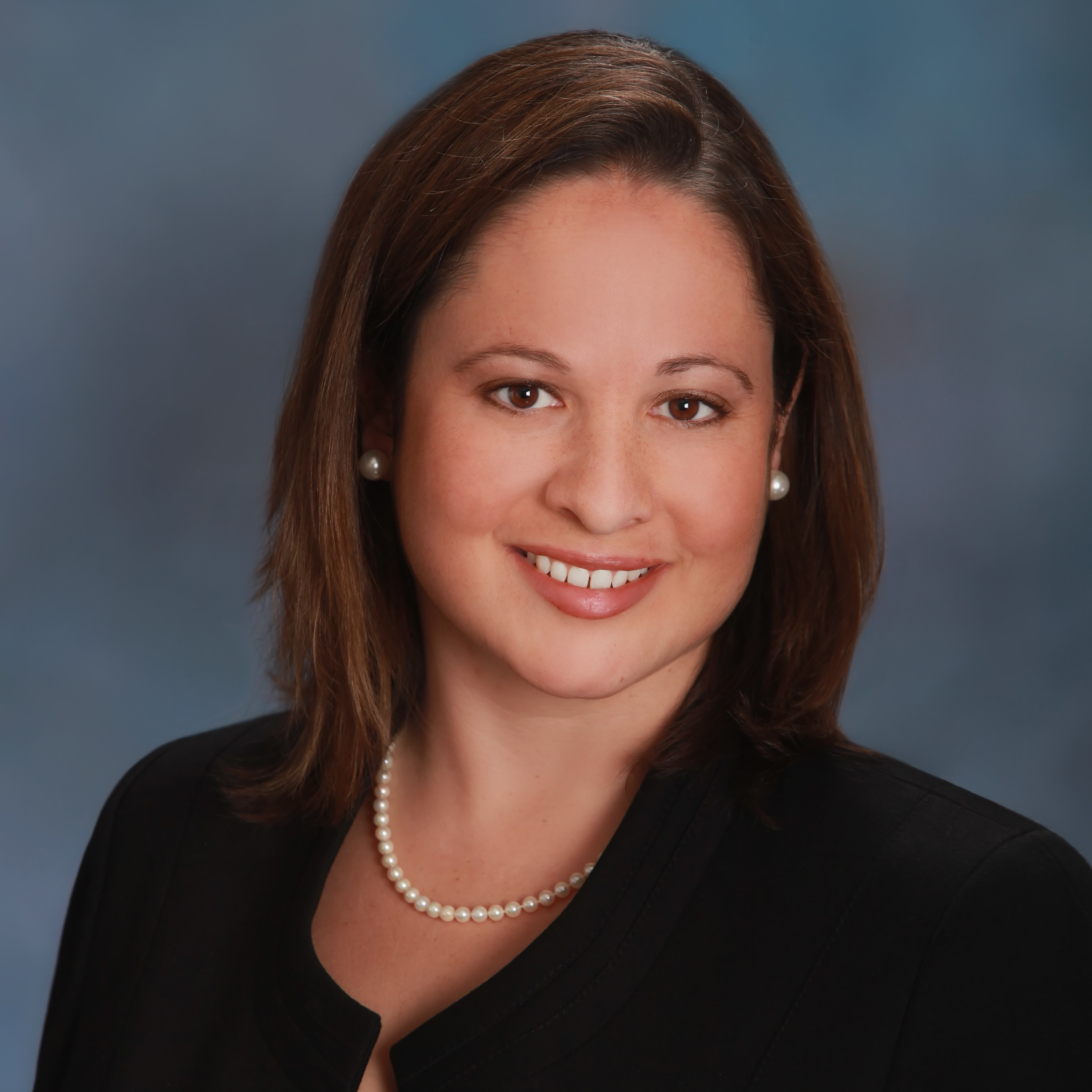
Lauren C. Bell is the James L. Miller Professor of Political Science and Special Assistant to the Provost at Randolph-Macon College. Dr. Bell holds a Bachelor of Arts degree from the College of Wooster (Ohio) and Masters of Arts and Doctor of Philosophy degrees from the Carl Albert Congressional Research and Studies Center at The University of Oklahoma. She is a former American Political Science Association Congressional Fellow (1997-98) on the United States Senate Committee on the Judiciary and a former United States Supreme Court fellow (2006-07) at the United States Sentencing Commission in Washington, DC. Dr. Bell has published single- and co-authored articles in several law reviews and peer-reviewed journals, including the Journal of Politics, Political Research Quarterly, The Journal of Legislative Studies, The Journal of Public Administration Research and Theory, Judicature, and The Wayne Law Review. Dr. Bell joined the faculty at Randolph-Macon in Fall 1999, where she served as Associate Dean of the College from 2007 until 2014 and as Dean of Academic Affairs from 2014 until 2022.
During the 2019-2020 academic year, Dr. Bell hosted a Fulbright Scholar-in-Residence from the Netherlands at Randolph-Macon College, a small liberal arts college.
Richard Johnson – Harper College (Palatine, IL)
Image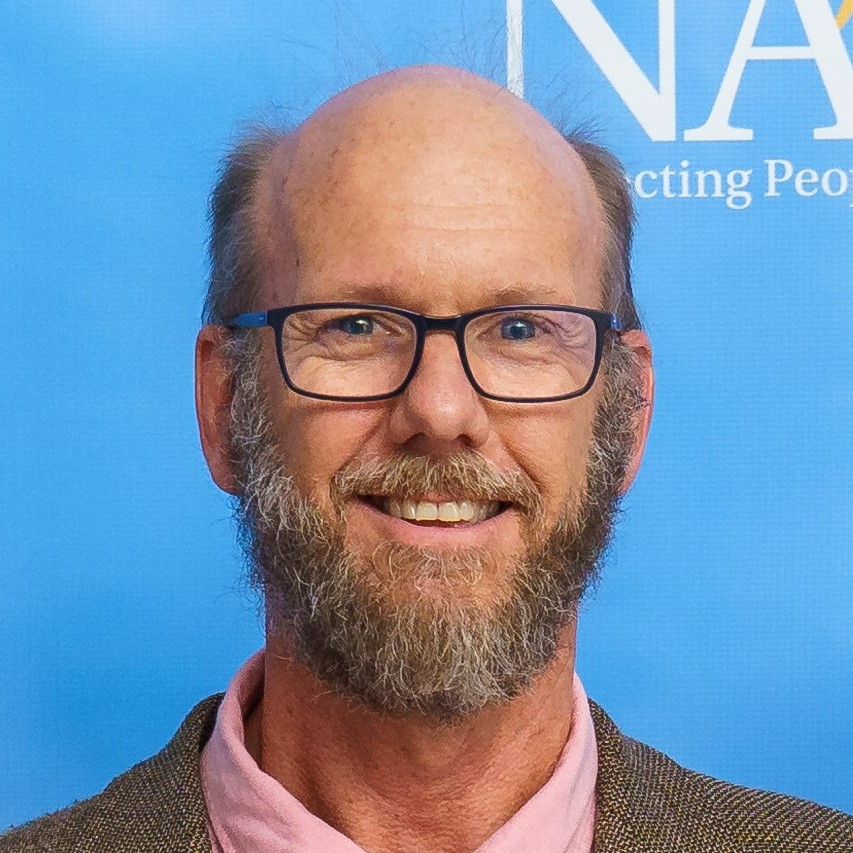
Richard F. Johnson is Professor of English and Humanities, and the Director of the Office of International Education at Harper College. As Director of International Education, he oversees the college’s Global Focus initiative, study abroad program, campus programming, faculty development, and the graduation Global Scholars Distinction. The son of a career diplomat, Rich grew up in Yugoslavia, Bulgaria, Romania, and Brazil. He attended the School of Foreign Service at Georgetown University before serving with the U.S. Peace Corps in Burkina Faso. In his academic career, Rich received a PhD in medieval studies and has published extensively on Anglo-Saxon hagiography, including Saint Michael the Archangel in Medieval English Legend (Boydell & Brewer, 2005). An aficionado of bluegrass music, Rich also plays the 5-string banjo.
Dr. Johnson has hosted two Fulbright Scholars-in-Residence from Uganda (2015-2016) and Costa Rica (2018-2019) at Harper College, a community college.
Vilma Fuentes – Santa Fe College (Gainesville, FL)
Image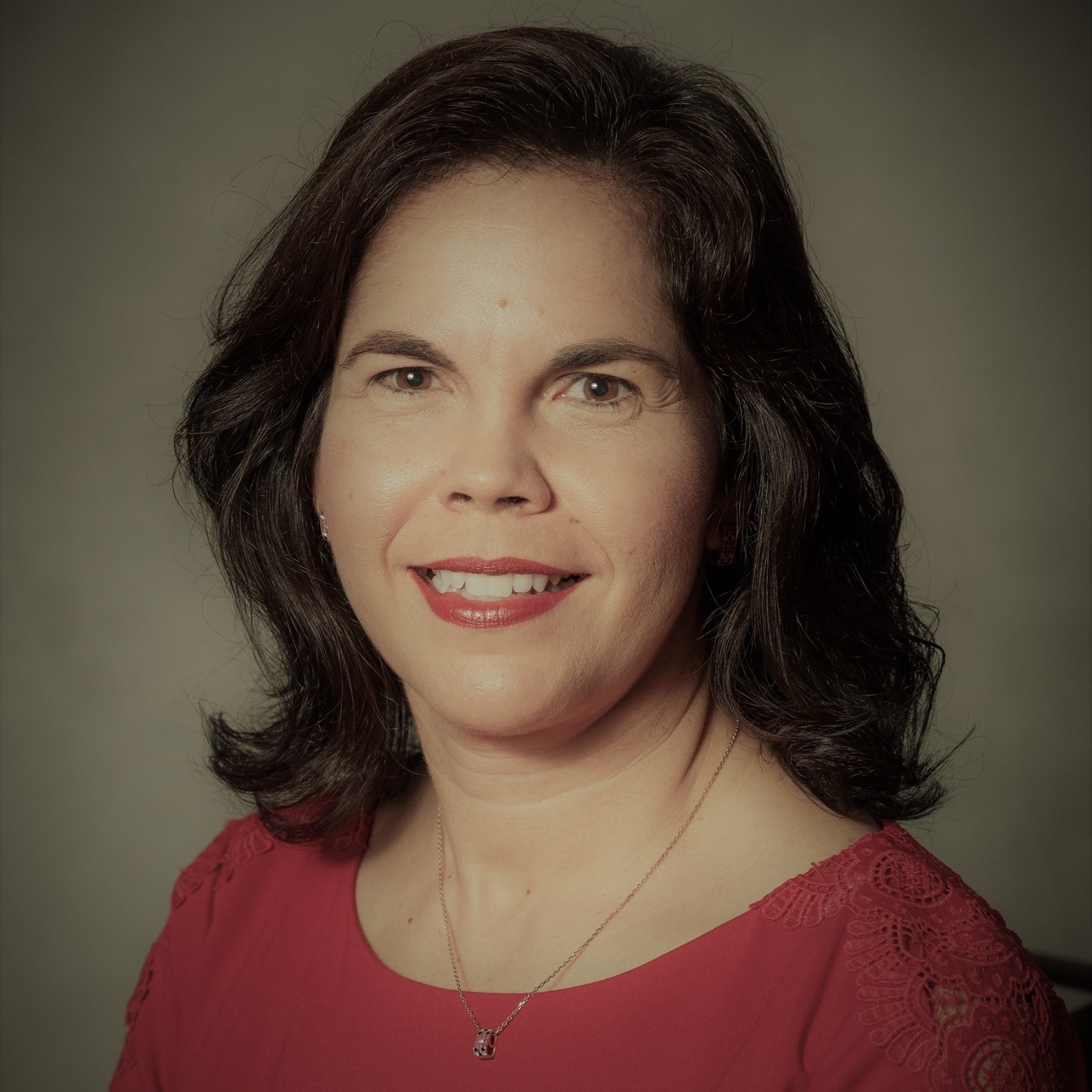
Dr. Vilma Fuentes serves as the Assistant Vice President for Academic Affairs at Santa Fe College where she provides leadership for the college’s international education initiatives, study abroad programs, international partnerships, and international grants. She earned a Ph.D. in political science from the University of Florida in 2003 with a regional specialization on Latin America and an M.A. in International Studies from Florida International University in 1997. Dr. Fuentes has directed a Capacity Building Grant, a 100,000 strong in the Americas grant, an NEH Latino Americans grant, and co-directed eleven U.S. Department of State-sponsored Community College Administrator Programs. Dr. Fuentes has led study abroad programs to Colombia, Guatemala, Germany, Honduras, Poland and Ukraine. She also led the development of an International Studies Certificate at her institution. She helped Santa Fe College start and sustain international cooperation agreements with institutions in China, Brazil, Indonesia, and Ukraine which support student and/or faculty exchange programs.
Dr. Fuentes has been a Fulbright Specialist and has hosted four Fulbright Scholars-in-Residence from Brazil, Egypt, Indonesia, and Ukraine. She has also managed and/or been an active participant in two of the college’s Undergraduate International Studies and Foreign Languages (UISFL) grants.

